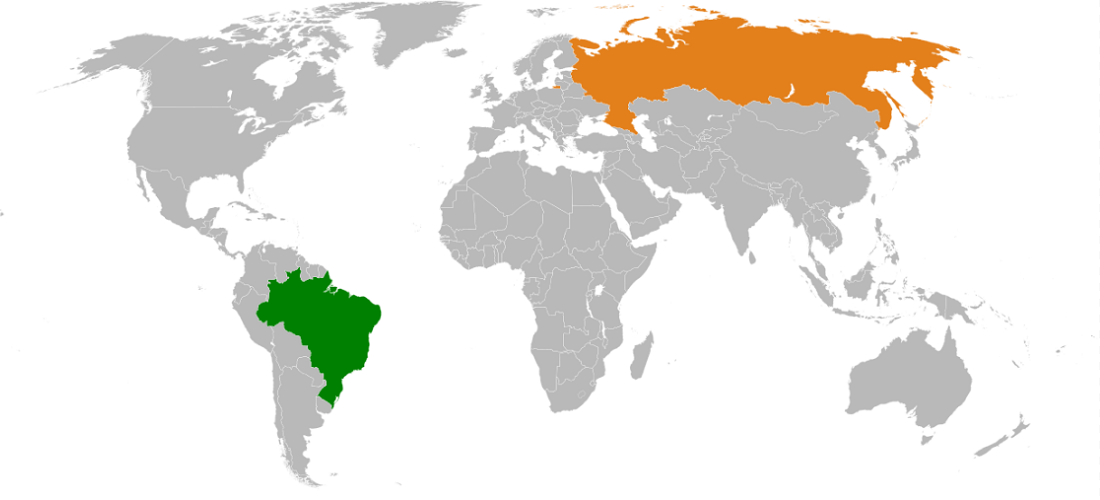
The revenue earned from Russian exports to Brazil doubled since the beginning of the war
May, 17, 2022 Posted by Gabriel MalheirosWeek 202220
The revenue earned from Russian exports to Brazil has strongly increased since the beginning of the war in Ukraine, which is perceptible both in the price of the goods purchased by Brazil and the strategy to anticipate fertilizer imports to secure enough supply to the domestic market.
Under severe embargoes and trade sanctions, Russia began to see its trade with some of the main Western markets interrupted. However, booms in commodity and energy prices have allowed the revenue from Russian sales to increase exponentially.
In the eurozone, Russian sales between January and March 2021 totaled 31 billion euros. In the same period of 2022, Russian exports totaled 63 billion euros, an increase of more than 104%. As for trade with Brazil specifically, official data from the Brazilian government indicate a similar trend, even though energy is not the centre of imports here.
According to official data from the Ministry of Economy, Brazil imported US$ 485 million from Russia in February. In the following month, the value increased to US$ 565 million. In April, the increase was even more substantial, with a flow of US$ 804 million and the highest volume in bilateral trade in at least six years.
Russian fertilizers represent more than 20% of the national supply of the product, and for areas such as soybeans, imports from Moscow are considered strategic. Diplomatic sources in Brasília explained that there was an understanding, allowed by the US government, that fertilizers would not be included in the list of products under embargo. However, the difficulty of importing cannot be undermined. Banks refuse to give credit for the operations or raise their loan prices, while some of the main ports in the Baltic Sea no longer allow Russian shipments. The result is more expensive transactions.
Brazil does not apply sanctions, but trade collapses nonetheless
Even though Brazil is now paying more today for Russian products, domestic sales to the Russian market have plummeted since the beginning of the war. In February, Brazil exported US$ 250 million in products to Russia, mostly agricultural goods. The revenue earned dropped to $172 million in March, and in April, it reached only $91 million, one of the worst values in six years.
One of the main problems is the lack of Brazilian companies that carry out maritime transport. National products, therefore, are dependent on international companies that do not want to be hit by sanctions.
When the actions against Russia were first adopted, only one of these companies agreed to carry 800 containers of Brazilian agricultural goods worth US$ 60 million to Moscow. Still, the company left them at different ports around the globe to avoid delivering them directly to Russian hands.
See below the major export and import trends concerning Brazil’s trade with Russia from January 2021 to March 2022. The data are from DataLiner.
Brazil – Russia Trade (Exports and Imports) | Jan 2021 – Mar 2022 | TEU
Source: DataLiner (click here to request a demo)
SL Trading’s João Santos Lima, a fruit trade specialist, pointed out that it is nearly impossible today to supply national products to the Slavic country. “Brazil does not adopt sanctions. However, by not having its own maritime shipping line, it also suffers,” he said. “There are no sanctions, but there is no trade in many sectors of the economy either,” he explained.
In the case of peanuts or animal cuts, the freight charged made exports impossible. For him, if the flow of exports fell between February and April, it might be even greater in the coming months if the war continues.
Brazil has claimed many different international bodies that sanctions affecting agriculture could have a profound impact and reopen the debate around world famine. At the WTO, for example, Brazil’s foreign relations authorities proposed the creation of a food and fertilizer corridor.
Source: UOL
To read the full original article, please go to:
-
Mar, 20, 2025
0
Brazilian Cotton Export Reaches New Record
-
Ports and Terminals
Jun, 05, 2020
0
Antaq to hold virtual public consultation for leasing of Mucuripe Port
-
Ports and Terminals
Mar, 16, 2022
0
Lockdown has damaging effects on cargo freight in China
-
Ports and Terminals
Feb, 09, 2021
0
ANTAQ to hold public consultations for port leases in Fortaleza and Suape (PE)

